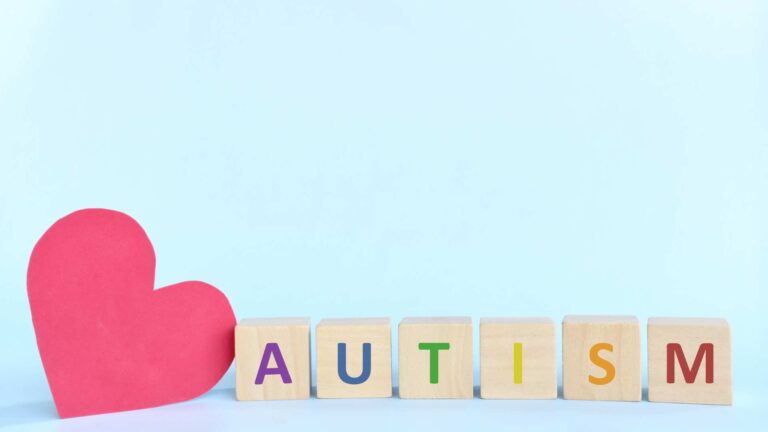Tabla de contenidos
What fictional character has autism?
Representation matters. For years, individuals with autism spectrum disorder (ASD) have been underrepresented or misrepresented in popular media. But times are changing. Slowly and thoughtfully, the entertainment world has started introducing autistic characters and narratives that reflect the experiences of the neurodiverse community. These characters not only inspire but also help foster awareness and empathy among audiences across the globe.
So, what fictional character has autism? If you’re passionate about inclusive storytelling or simply curious about which figures have paved the way in showcasing neurodiversity, this guide by Texas ABA Centers explores ten iconic autistic characters that have left an indelible mark on pop culture.
What Is Autism and Why Does Representation Matter?
ASD is a neurodevelopmental condition in which individuals experience challenges with neurotypical social interaction and communication and restricted, repetitive patterns of behavior. Each individual’s experience of autism is unique, often referred to as “if you’ve met one person with autism, you’ve met one person with autism.”
Representation in media profoundly shapes societal perceptions. Authentic portrayals of neurodivergent individuals can create more opportunities for understanding, inclusion, and empathy. When people see themselves reflected in film, television, and books, it validates their experiences and offers a sense of belonging.
Enter the realm of iconic autistic characters. These fictional (and sometimes real-life-inspired) figures help tell important stories, bridging gaps in understanding and humanizing the autism experience.

Exploring Pop Culture’s Most Iconic Autistic Characters
- Scarlet Saltee From Archie Comics
Scarlet Saltee was introduced in 2018 and quickly became a beacon of inclusion. She navigates social cues with difficulty, yet compassionately emphasizes kindness and mutual respect. Her stories not only entertain but also spark essential conversations about acceptance and understanding.
- Billy Cranston From Power Rangers
Known as the first openly superhero with autism in a major motion picture, Billy Cranston redefined representation in the 2017 Power Rangers movie. His character showcased unique problem-solving abilities while illustrating the everyday challenges individuals with autism may face.
- Reed Richards From Fantastic Four
Reed Richards, aka Mr. Fantastic, self-diagnoses as autistic in Fantastic Four Season One. While sparking debates about accuracy, his case brings autism into the spotlight, proving that even a superhero can showcase traits of neurodivergence.
- Emma From Jade Street Protection Services
This nonverbal character exhibits her personality through text-based communication, breaking barriers in how the media portrays neurodivergent individuals. Emma’s storyline resonates with authenticity, reflecting real-world challenges that many in the autism community relate to.
- Gary Bell From Alphas
Gary possesses a unique ability to track electromagnetic signals, serving as a metaphor for heightened sensory processing. His portrayal in the TV series Alphas struck a chord with audiences for its realism and depth of character.
- L From Death Note
The neurodiverse community reveres the enigmatic detective from Death Note for his razor-sharp intellect, unconventional social behaviors, and intense focus. While not explicitly autistic, L’s character resonates strongly with neurodiverse individuals.
- Sheldon Cooper From The Big Bang Theory
Sheldon may not have a formal diagnosis, but his strict routines, deep intellectual passions, and social misunderstandings align with many autism traits. His character has sparked both awareness and debate about the portrayal of autism in mainstream pop culture.
- Spock From Star Trek
His logical decision-making defines the iconic Vulcan and struggles with emotional expression. Spock’s popularity among neurodivergent fans demonstrates the importance of nuanced characters in sci-fi media.
- Julia From Sesame Street
Sesame Street introduced Julia to teach children about autism in an easily approachable manner. Through her interactions with other Sesame Street characters, Julia educates young audiences about acceptance, emphasizing how kids can build friendships with peers who think and act differently.
- Raymond Babbitt From Rain Man
Played by Dustin Hoffman, Raymond introduced generations to autism. Equipped with incredible savant abilities and difficulty with social interactions, his portrayal has become both groundbreaking and controversial, as not all individuals with autism possess savant skills.
- Sam Gardner From Atypical
Sam is a modern, relatable depiction of a young man with autism who navigates relationships, school, and independence. He offers insight into the everyday challenges and triumphs of individuals on the spectrum.
- Abed Nadir From Community
Breaking away from typical portrayals of autism linked to science and math, Abed thrives in pop culture analysis. His exploration of relationships and social interactions in Community is refreshing, relatable, and resonant.
The Role of Neurodivergent Characters in Media Shaping Inclusion
These autistic characters do more than offer entertainment. They foster a better understanding of autism and neurodiversity in a world that still struggles with misconceptions. By representing a broad spectrum of experiences, these neurodivergent characters in media have opened paths to empathy, acceptance, and inclusion.

However, media depictions are far from perfect. Historically, autistic characters have often been portrayed as savants or socially challenged geniuses. While these traits may resonate with some, they don’t represent the broad spectrum of autism. And sometimes, stereotypes can do more harm than good by perpetuating misinformation.
To counterbalance these portrayals, the neurodiverse community and its advocates encourage creators to collaborate with autistic individuals and experts when developing autistic characters and storylines. Involving people with autism helps ensure authenticity and highlights the rich diversity within the autism spectrum.
How ABA Therapy Supports the Neurodivergent Community
While these characters have paved the way for awareness in pop culture, real-life support systems like Applied Behavior Analysis (ABA) therapy play a vital role in empowering individuals with autism.
¿Qué es la Terapia ABA?
ABA therapy helps individuals develop communication, social, and adaptive skills aligned with their strengths and challenges. By focusing on tailored strategies and positive reinforcement, ABA encourages growth in environments such as schools, homes, and communities.
Why Choose ABA?
More than just skill-building, ABA incorporates personal interests to make learning enjoyable. Whether it’s a love for superheroes, tactical problem-solving, or Star Trek trivia, there’s always room for individuality in therapy.
While media characters open minds, it’s essential to combine awareness with action. By supporting services like ABA therapy, we can create tangible changes for individuals with autism.
Moving Toward More Inclusive Media Storytelling

Iconic neurodiverse and autistic characters have shown us how far we’ve come. Their stories entertain, educate, and inspire. But the road to authentic and respectful representation is a work in progress.
Creators must prioritize collaboration with neurodiverse individuals to foster a more inclusive world. Accurate narratives give voice to the unheard, create understanding, and open doors for profound societal impact.
Want to see better representation in media?
Start by amplifying the voices of neurodiverse creators, thoughtfully celebrating neurodivergent characters, and educating yourself on the experiences of those with autism.
It’s time to redefine the narratives we consume. Together, we can script new stories that represent the full spectrum of humanity.
Texas ABA Centers Supporting Neurodiverse Community
En Texas ABA Centers, we’re proud to support the neurodiverse community through comprehensive, personalized care.
Whether at home, in schools, or at one of our Centers, our dedicated clinicians work hand-in-hand with families to help children thrive. With no waitlists for autism diagnostic services and a commitment to evidence-based ABA therapy, we’re here to empower every child!
Ready to take the next step? Call us today at (877) 771-5725 or learn more about our services online. Compassionate care and proven strategies are just a call away.








